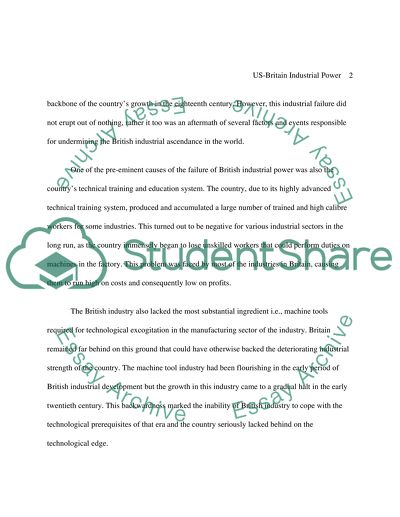Cite this document
(“US-Britain industrial power Essay Example | Topics and Well Written Essays - 1750 words”, n.d.)
Retrieved from https://studentshare.org/politics/1518902-us-britain-industrial-power
Retrieved from https://studentshare.org/politics/1518902-us-britain-industrial-power
(US-Britain Industrial Power Essay Example | Topics and Well Written Essays - 1750 Words)
https://studentshare.org/politics/1518902-us-britain-industrial-power.
https://studentshare.org/politics/1518902-us-britain-industrial-power.
“US-Britain Industrial Power Essay Example | Topics and Well Written Essays - 1750 Words”, n.d. https://studentshare.org/politics/1518902-us-britain-industrial-power.


